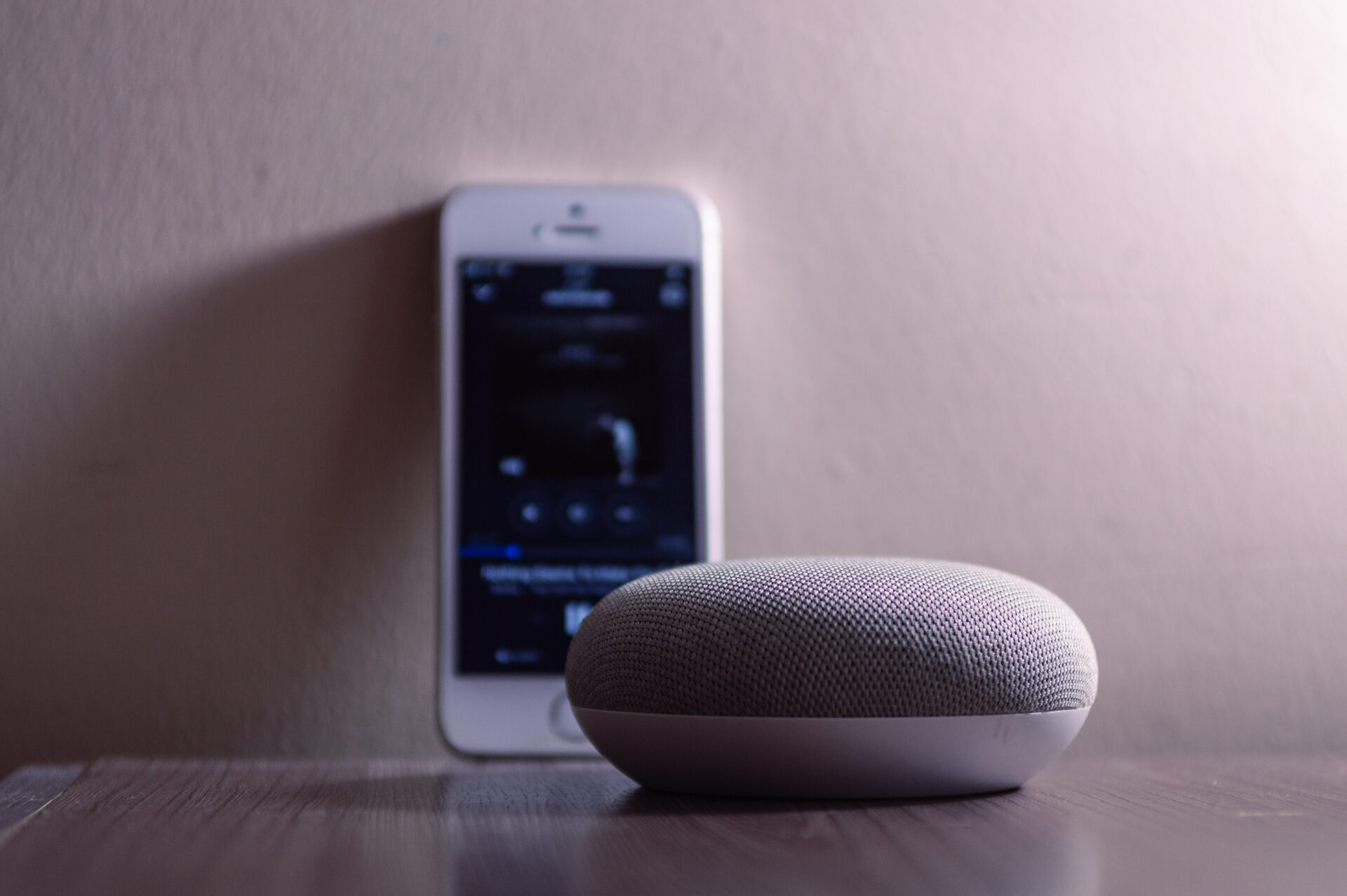In today’s rapidly advancing technological landscape, voice assistants have emerged as a game-changing innovation, revolutionizing the way we interact with and manage our smart homes. This article delves into the growing significance of voice-enabled smart home devices, examining their transformative impact on our daily lives, the underlying technology powering these virtual assistants, and the role they play in enhancing convenience, security, and energy efficiency. Join us as we explore the exciting world of voice assistants and their potential to redefine the smart home experience, making it more intuitive, personalized, and accessible than ever before.
Top Voice Assistants Transforming Smart Home Automation
Voice assistants have become an integral part of modern smart homes, significantly enhancing convenience, accessibility, and efficiency. By leveraging artificial intelligence (AI) and natural language processing (NLP), these virtual assistants enable users to operate various smart devices and appliances simply by issuing voice commands. In this section, we will explore some of the most popular voice assistants on the market today, delving into their features, strengths, and the unique ways they are transforming smart home automation.
Amazon Echo and Alexa: The Pioneer of Voice Assistant Technology
As one of the first voice assistants to hit the consumer market, Amazon’s Alexa has become synonymous with smart home automation. Integrated into the Amazon Echo line of smart speakers, Alexa allows users to control a wide range of smart home devices, such as lighting, thermostats, and security systems. With its ever-evolving skillset and compatibility with a vast array of third-party devices, Alexa continues to lead the pack in terms of popularity and functionality.
Google Home and Google Assistant: Powering Smart Homes with Advanced AI
Google Assistant, the tech giant’s voice-controlled virtual assistant, is another dominant player in the smart home market. Integrated into Google Home devices and a variety of third-party smart speakers, Google Assistant leverages the company’s advanced AI and search capabilities to offer personalized assistance and support. With a strong focus on natural language processing and contextual understanding, Google Assistant delivers a seamless and intuitive user experience, making it a formidable competitor in the voice assistant landscape.
Apple HomePod and Siri: Merging High-Quality Audio with Voice Control
Apple’s Siri, one of the earliest smartphone-based voice assistants, has now found its way into the smart home ecosystem through the HomePod smart speaker. While Siri may not have the same level of compatibility as Alexa or Google Assistant, it excels in terms of audio quality and seamless integration with Apple’s ecosystem. For users heavily invested in Apple products and services, the HomePod and Siri offer a cohesive and reliable voice assistant solution for smart home management.
Microsoft Cortana and Invoke: Bridging the Gap between Home and Office
Microsoft’s Cortana, initially designed as a personal assistant for Windows devices, has expanded its capabilities to include smart home management through the Harman Kardon Invoke smart speaker. While Cortana may not have as wide a reach as its counterparts, it stands out with its strong emphasis on productivity and integration with Microsoft’s suite of tools and services. This makes Cortana an appealing option for those looking to streamline their home and office life through voice-assisted automation.
These top voice assistants, each with their unique strengths and features, are driving the evolution of smart home automation, making it more accessible and intuitive for users worldwide. As the technology continues to advance and improve, we can look forward to an even more seamless and personalized smart home experience, powered by the ever-growing capabilities of voice assistant platforms.
Integrating Voice Control in Everyday Household Activities
Voice assistants have become an essential component of the modern smart home, offering numerous opportunities to simplify and streamline everyday tasks. As these voice-controlled technologies continue to advance, we are witnessing a growing trend of voice-enabled smart devices being integrated into various aspects of our daily lives. In this section, we will explore some of the key areas where voice assistants are revolutionizing household activities, contributing to a more seamless, efficient, and enjoyable home experience.
Effortless Smart Home Management
One of the most significant advantages of voice assistants is the ability to control multiple smart devices within your home using simple voice commands. Whether it’s adjusting the thermostat, changing the lighting, or activating your security system, voice control makes managing your smart home a breeze. By consolidating all these functions into a single, unified platform, voice assistants enable homeowners to seamlessly monitor and control their living environment without any hassle.
Enhancing Entertainment Experiences
Voice assistants are also transforming the way we consume entertainment, making it easier than ever to access and enjoy our favorite content. From controlling your smart TV and streaming devices to selecting music playlists and adjusting the volume, voice control has become a staple feature in modern home entertainment systems. With the power of voice commands, you can effortlessly navigate through countless entertainment options and customize your experience to suit your preferences.
Streamlining Kitchen Routines
The kitchen is another area where voice assistants are making a significant impact, helping users with various tasks, such as setting timers, creating shopping lists, and even providing step-by-step cooking instructions. Voice control eliminates the need for manual inputs, ensuring that your hands remain free to focus on your culinary creations. Furthermore, voice assistants can offer recipe suggestions, nutritional information, and even convert measurements, making meal preparation more efficient and enjoyable.
Optimizing Morning and Evening Routines
Voice assistants can also play an integral role in optimizing your daily routines, ensuring that you start and end each day on the right note. From waking you up with a personalized alarm to providing traffic updates and weather forecasts, voice assistants can help you plan your day effectively. Similarly, at night, your voice assistant can be programmed to initiate a relaxing bedtime routine, such as dimming the lights, playing soothing music, or even reading an audiobook to help you unwind.
Personalized Assistance for Every Family Member
One of the most remarkable features of modern voice assistants is their ability to recognize and distinguish between different users’ voices. This allows for personalized assistance tailored to each family member’s preferences, schedules, and habits. From customized news updates and calendar reminders to individualized entertainment choices, voice assistants can cater to the unique needs and interests of every member of your household.
As demonstrated by these examples, voice assistants are revolutionizing various aspects of our daily lives, making it easier and more enjoyable to manage our households. By integrating voice control into everyday activities, we can harness the power of this innovative technology to create a more efficient, personalized, and engaging smart home experience.
Enhancing Home Security with Voice-Activated Devices
The integration of voice assistants into smart home ecosystems has not only made our lives more convenient but has also played a pivotal role in improving the security of our homes. Voice-activated devices have paved the way for more efficient and accessible home security solutions, allowing users to monitor and control their homes with just a simple command. In this section, we will delve into the various ways voice assistants are revolutionizing home security and examine some of the innovative devices that are transforming the way we protect our homes and loved ones.
Quick and Convenient Security System Control
One of the most significant benefits of voice-activated devices in home security is the ability to control and manage security systems with ease. By issuing voice commands, users can arm or disarm their security systems, lock or unlock doors, and even view live camera feeds without the need for manual inputs. This streamlined control enables homeowners to remain vigilant and responsive to potential security threats, ensuring that their homes are always protected.
Intelligent Security Notifications and Alerts
Voice assistants can be configured to provide real-time security notifications and alerts, keeping homeowners informed about any unusual activity in their homes. Whether it’s a triggered motion sensor, a breached security perimeter, or an open door, voice assistants can promptly notify users and even suggest appropriate actions to mitigate potential risks. This proactive approach to home security allows users to stay one step ahead of potential threats and maintain a secure living environment.
Customized Security Routines and Automation
With voice-activated devices, users can create customized security routines that cater to their unique needs and preferences. For instance, a homeowner can program their voice assistant to automatically lock all doors, arm the security system, and turn off unnecessary lights when a specific command is given or at a predetermined time. This level of customization and automation not only simplifies the process of securing your home but also ensures that you never forget any crucial security-related tasks.
Emergency Assistance and Voice-Activated Panic Buttons
In times of crisis, voice assistants can serve as a valuable tool for requesting emergency assistance. By issuing a voice command, users can instantly connect with emergency services, such as the police or fire department, without the need for a phone call. Additionally, some security devices feature voice-activated panic buttons, enabling users to discreetly alert authorities or trusted contacts in case of an emergency. This can prove invaluable in situations where physically reaching for a phone or activating an alarm may not be possible.
Enhanced Access Control through Voice Recognition
One of the most innovative features of modern voice assistants is their ability to recognize and distinguish between different users’ voices. This technology can be leveraged to enhance the access control of your home security system, granting or denying entry based on voice recognition. By restricting access to authorized individuals, voice recognition technology can help prevent unauthorized entry and ensure that your home remains secure at all times.
As we have explored in this section, voice assistants are playing an increasingly important role in enhancing the security of our smart homes. From convenient control and real-time notifications to personalized routines and emergency assistance, voice-activated devices are transforming the way we protect our homes and loved ones. By embracing these innovative technologies, we can create a safer and more secure living environment for ourselves and our families.
Customizing Smart Home Routines with Voice Assistants
As voice assistants continue to evolve and become more integrated into our daily lives, they are also providing us with the ability to create and customize smart home routines that cater to our unique needs and preferences. By leveraging the power of voice commands, users can now easily set up and manage personalized routines, automating various tasks and activities throughout the day. In this subsection, we will explore how voice assistants are enabling users to customize smart home routines, making life more efficient, convenient, and enjoyable.
Creating Personalized Morning and Evening Routines
One of the most appealing aspects of voice assistants is their ability to help users establish customized morning and evening routines. For instance, you can program your voice assistant to gently wake you up with your favorite music, gradually increase the brightness of your bedroom lights, and provide you with a personalized weather forecast and news update. Similarly, at night, a voice command can initiate a relaxing bedtime routine, such as dimming the lights, adjusting the thermostat, and playing soothing sounds to help you unwind.
Automating Household Chores and Tasks
Voice assistants can also be used to automate various household chores and tasks, making it easier to keep your home clean, organized, and well-maintained. With voice commands, you can control smart appliances like robot vacuums, washing machines, and dishwashers, scheduling them to run at specific times or when prompted. You can also use your voice assistant to manage energy usage by automatically turning off lights, adjusting thermostats, and powering down non-essential devices when not in use.
Seamless Integration of Entertainment and Smart Devices
Creating a truly immersive and enjoyable entertainment experience has never been easier, thanks to the integration of voice assistants with smart home devices. You can customize your entertainment routines by using voice commands to control your smart TV, streaming devices, and audio systems, making it simple to switch between your favorite shows, movies, and music. Additionally, you can create scenes that adjust the lighting, temperature, and ambiance of your living space to match your entertainment preferences.
Optimizing Work-From-Home Routines
For those who work from home, voice assistants can be invaluable in helping establish productive and efficient routines. By setting up personalized reminders, timers, and calendar events, you can ensure that you stay on top of your tasks and meetings. You can also use your voice assistant to control smart devices in your home office, such as adjusting lighting, managing temperature, and even starting a pot of coffee when you need a mid-day pick-me-up.
Enhancing Family Communication and Coordination
Voice assistants can also play a crucial role in improving family communication and coordination, making it easier to manage hectic schedules and stay connected with loved ones. By setting up shared calendars, to-do lists, and reminders, family members can stay informed about each other’s activities and commitments. Voice assistants can also be used to send messages and make hands-free calls, ensuring that everyone stays in touch, even when they’re on the go.
With voice assistants revolutionizing smart homes, customizing daily routines has never been more accessible or convenient. By taking advantage of the advanced features and capabilities offered by these innovative devices, users can create personalized smart home experiences that cater to their unique needs and preferences. This ultimately results in a more efficient, enjoyable, and harmonious living environment, where voice commands can effortlessly control and automate various aspects of our daily lives.
The Future of Voice Technology in Smart Home Ecosystems
As voice assistants continue to gain prominence in modern smart homes, it is crucial to consider the potential future developments and trends shaping the voice technology landscape. In this subsection, we will delve into the exciting prospects and challenges that lie ahead for voice-enabled smart home ecosystems, exploring how these innovations can further revolutionize the way we interact with and manage our living spaces.
Increasingly Sophisticated AI and Natural Language Processing
One of the key factors driving the growth and evolution of voice assistants is the rapid advancement in AI and natural language processing technologies. As these underlying systems become more sophisticated, we can expect voice assistants to develop a deeper understanding of context and more nuanced conversational capabilities. This will allow for even more seamless and intuitive interactions between users and their smart home devices, bridging the gap between human and machine communication.
Expanding Compatibility and Integration with Third-Party Devices
The future of voice technology in smart homes will also see a greater emphasis on compatibility and integration with a diverse range of third-party devices and platforms. As voice assistants become more ubiquitous, manufacturers and developers will be increasingly motivated to create products that are compatible with popular voice platforms, such as Alexa, Google Assistant, and Siri. This will lead to a more cohesive and interconnected smart home ecosystem, where a multitude of devices can be easily controlled and managed through a single voice assistant.
Enhancing Privacy and Security Features
As voice assistants become more deeply integrated into our daily lives, addressing privacy and security concerns will be a top priority for developers and manufacturers. Innovations in voice recognition technology, data encryption, and user authentication methods will play a critical role in safeguarding users’ personal information and ensuring that their smart homes remain secure. By addressing these challenges, voice technology can continue to gain users’ trust and establish itself as a reliable and indispensable component of the smart home experience.
More Personalized and Context-Aware Assistance
Another exciting prospect for the future of voice technology is the development of more personalized and context-aware assistance. By leveraging advanced analytics and machine learning algorithms, voice assistants can learn from users’ habits, preferences, and routines, offering tailored suggestions, recommendations, and reminders. This will ultimately result in a more customized and meaningful smart home experience, where voice assistants truly understand and cater to the unique needs and interests of each user.
Greater Adoption of Multimodal Interfaces
As voice technology continues to mature, we can also expect to see a growing trend towards multimodal interfaces, where voice assistants are complemented by other forms of interaction, such as touchscreens and gesture control. This will enable users to choose the most suitable and convenient mode of interaction based on their specific needs, preferences, and the context in which they are using the device. By embracing a more holistic approach to smart home control, voice technology can further enhance its versatility and appeal to a broader range of users.
The future of voice technology in smart home ecosystems promises to be an exciting and transformative journey, with numerous innovations and developments on the horizon. As AI and natural language processing continue to advance, and compatibility, privacy, and personalization features improve, voice assistants will become an even more integral part of our smart homes. Embracing these innovations will enable us to create more seamless, efficient, and engaging living environments, where voice technology serves as the cornerstone of a truly interconnected and intelligent smart home experience.





Leave a reply